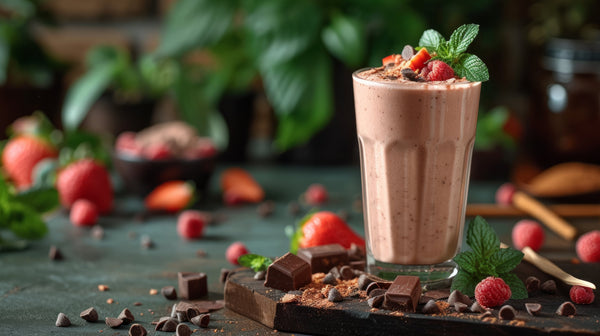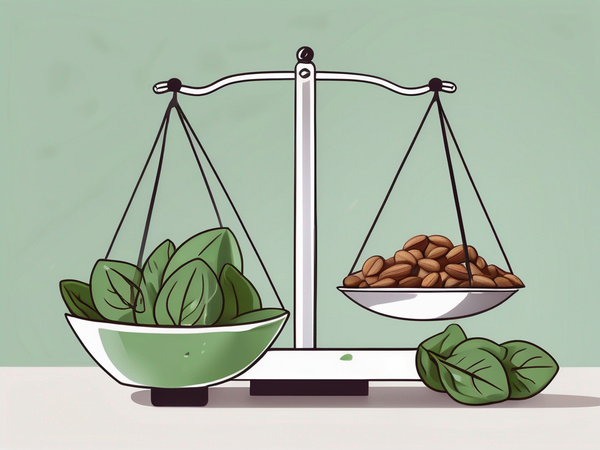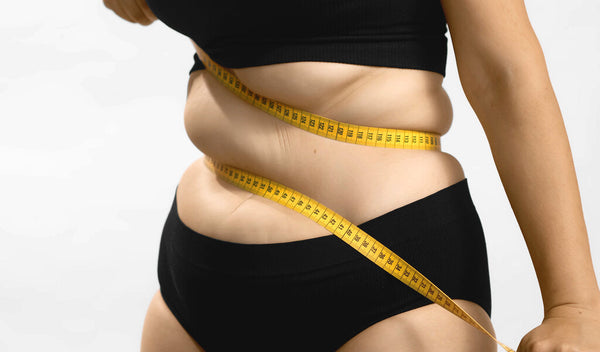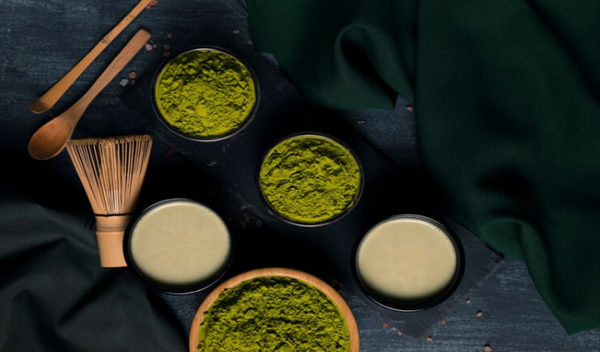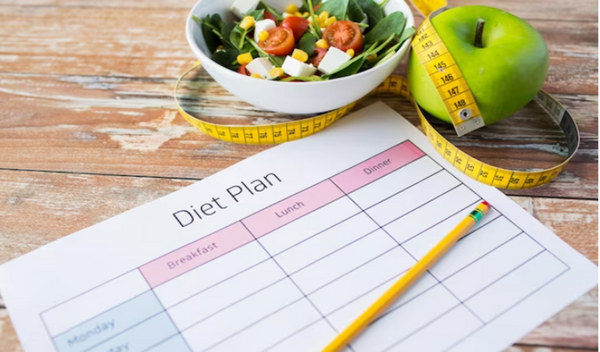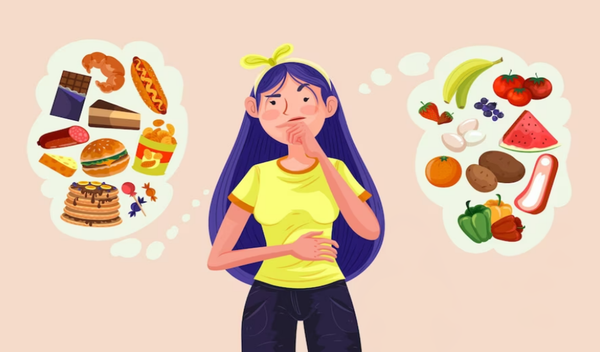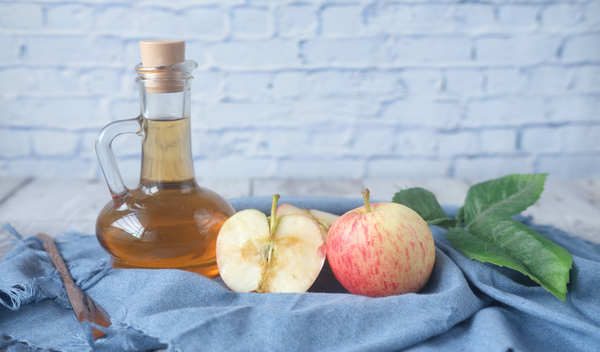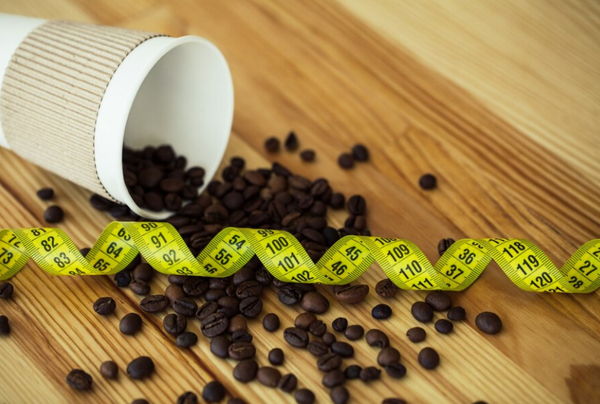The holiday season entails meeting loved ones, playing games, spending wholesome time together, eating the most delicious food, or partying all night. But one thing that almost everyone hates is the extra weight gain during this season.
However, the good news is that holiday weight gain is not as big a problem as people think it is. Simple lifestyle changes like consuming fewer calories and choosing the right meals accompanied by some physical activity can help you get back in shape and achieve your 2023 weight goals.
In this blog, we will talk about how you can manage your weight this year and get rid of the extra weight you might have gained during the holidays.
Why Do People Tend to Gain Weight During the Holiday Season?
1. Cold Weather Can Lead to Excessive Eating
Since the cold weather can make your body temperature drop, people tend to crave heavier and warmer foods. This drop can urge you to eat more as eating helps your body generate internal heat. And most times, people respond by eating sugary, high in carb, or high-calorie foods that provide instant heat.
As you eat these foods, your blood sugar spikes and then falls making your appetite work, keeping it in motion, and making you hungrier. Thus, the cycle continues. Most of these foods are also high in sodium which can lead to bloating and, eventually, weight gain.
Aside from this, we cannot ignore the fact that during this time of the year, there are constant social gatherings and cocktail parties involving lots of drinking and eating high-calorie foods and sugary desserts like pies, cakes, etc. So, sticking to a diet is futile.
2. Less Physical Activity
In addition to an increase in caloric intake, most people also decrease their physical activity and are generally less active during winter. Lower physical activity is directly related to fewer calories burnt. Also, as the days are colder, people lose the motivation to work out or go to gyms, further reducing physical activity. Thus, leading to an increase in weight.
3. Seasonal Affective Disorder (SAD)
SAD occurs when there is a change in the seasons, usually during the winter months. SAD is related to hormonal changes and neurotransmitters due to the loss of daylight and lack of vitamin D. Its symptoms include:
- Increase in appetite
- Increase in sugar cravings
- Excessive sleepiness
- Lack of physical activity
All of these symptoms are associated with weight gain during the winter, aka the holiday season.
How Do You Get Rid of the Holiday Weight?
1. Plan Your Meals
You can manage the holiday weight loss smoothly if you plan your meals wisely. The biggest mistake people make after the holidays are over is skipping meals altogether in hopes to burn the excess fat. But this will make you hungrier. Instead, follow these tips in order to meet your weight goals:
- Plan what you will eat ahead of the day.
- Add plenty of fruits and vegetables to your diet. Look for low-calorie vegetables like asparagus, cabbage, broccoli, etc., and try incorporating them into your diet. It will help you stay full for a long time and provide you with all the essential nutrients and minerals.
- Make sure you have enough protein in your meals, as you will be on a low-calorie diet. Protein will ensure you feel energetic throughout the day and keep you full for a long period of time thereby preventing any unwanted calorie intake.
- Forget the erratic meal timings you had during the holidays. Get back to your schedule and have your breakfast as early as possible.
2. Drink Plenty of Water and Low-Calorie Beverages
Warm water is one of the best drinks if you want to shed that extra weight gained during the holidays. It is great for your metabolism and is devoid of calories. In addition to that, it will help your body flush out toxins.
Dehydration is often confused with hunger. That is why make sure you keep yourself hydrated by drinking enough water, fruit-infused water, herbal or green teas, etc. However, give yourself a break from drinking alcohol, coffee, or lattes. Calorie-dense and sugar-laden drinks will do nothing but add up to your weight. Cutting alcohol and excessive simple sugar will help you detox and be great for your liver.
3. Exercise
Physical activity and exercise can help you get rid of the post-holiday weight. Choose a physical activity you love and enjoy doing. It can be running, jogging, gyming, or yoga. There are several options to choose from.
Physical activity increases the use of calories in your body for energy. The burning or use of calories in the body, when combined with fewer calorie intake, creates a calorie deficit in the body, leading to weight loss.
4 Tips to Help You Reach Your 2023 Body Weight Goals
Now that the holiday season is over, it's time to start taking care of your body again and work on the body weight goals you have decided to reach this year. Here's what you can do to achieve them: -
1. Walk Every Day
Walking is something simple that does not require a gym or heavy exercise equipment. It is one of the best exercises that benefits you in the long term.
Start with small goals and then gradually make them more challenging for yourself. For example, start walking for about twenty minutes in the initial days and gradually increase the duration.
2. Sleep Well
Sleeplessness can lead to an increase in the levels of ghrelin and a decrease in the levels of leptin in the blood. These hormones can increase the feeling of hunger and the desire to consume more junk food, thus, leading to unnecessary weight gain.
Therefore, you can significantly manage your weight by just sleeping well. Adequate sleep also wards off diabetes and other chronic diseases like depression, cardiovascular diseases, etc.
3. Eat a Healthy Diet
Fitness comes when you maintain the right balance between exercising and your diet. Make sure you consume a variety of fruits, vegetables, whole grains, nuts, and other nutritious food items. Your body needs essential nutrients, minerals, and vitamins to function properly. And having a healthy diet will make sure your body gets these nutrients.
Balance your meals by including the following: -
- A fat source like avocados, cheese, nuts, etc
- A protein source like beans, oats, tempeh, etc
- Some carbs like sweet potatoes, beets, etc
- Vegetables and fruits like broccoli, Brussels sprouts, oranges, bananas, etc.
Cut back on refined carbs like sugars and starches, as these may increase your hunger. Don't forget to keep yourself hydrated.
4. Health and Wellness Supplements
Some people struggle to maintain a healthy body weight despite the physical activity and consuming a nutritious and balanced diet. That's when weight loss tablets or weight loss supplements come into the picture. These supplements are the best fat burners as they help boost your metabolism, improve energy levels, increase satiety, and eventually lead to weight loss. Such supplements or weight-loss capsules can also help you lose the weight you gained during the holidays.
Wrapping Up
Getting fit and achieving your weight goals can take time and some hard work. But you will eventually see good results. With the right lifestyle and diet, you can make that possible. So, follow the above steps and bid adieu to those extra kilos.
However, if you are planning to add a weight loss supplement to your diet, do not forget to consult your healthcare advisor.
References
Institute of Medicine (US) Committee on Military Nutrition Research; Marriott BM, Carlson SJ, editors. Nutritional Needs In Cold And In High-Altitude Environments: Applications for Military Personnel in Field Operations. Washington (DC): National Academies Press (US); 1996. 12, Cold Exposure, Appetite, and Energy Balance. Available from: https://www.ncbi.nlm.nih.gov/books/NBK232851/
Garriga A, Sempere-Rubio N, Molina-Prados MJ, Faubel R. Impact of Seasonality on Physical Activity: A Systematic Review. Int J Environ Res Public Health. 2021 Dec 21;19(1):2. doi: 10.3390/ijerph19010002. PMID: 35010262; PMCID: PMC8751121. https://www.ncbi.nlm.nih.gov/pmc/articles/PMC8751121/
Yoshimura E, Tajiri E, Hatamoto Y, Tanaka S. Changes in Season Affect Body Weight, Physical Activity, Food Intake, and Sleep in Female College Students: A Preliminary Study. Int J Environ Res Public Health. 2020 Nov 24;17(23):8713. doi: 10.3390/ijerph17238713. PMID: 33255205; PMCID: PMC7727682. https://www.ncbi.nlm.nih.gov/pmc/articles/PMC7727682/
Vij VA, Joshi AS. Effect of 'water induced thermogenesis' on body weight, body mass index and body composition of overweight subjects. J Clin Diagn Res. 2013 Sep;7(9):1894-6. doi: 10.7860/JCDR/2013/5862.3344. Epub 2013 Sep 10. PMID: 24179891; PMCID: PMC3809630. https://www.ncbi.nlm.nih.gov/pmc/articles/PMC3809630/
Kleist B, Wahrburg U, Stehle P, Schomaker R, Greiwing A, Stoffel-Wagner B, Egert S. Moderate Walking Enhances the Effects of an Energy-Restricted Diet on Fat Mass Loss and Serum Insulin in Overweight and Obese Adults in a 12-Week Randomized Controlled Trial. J Nutr. 2017 Oct 1;147(10):1875-1884. doi: 10.3945/jn.117.251744. PMID: 28794207. https://pubmed.ncbi.nlm.nih.gov/28794207/
Taheri S, Lin L, Austin D, Young T, Mignot E. Short sleep duration is associated with reduced leptin, elevated ghrelin, and increased body mass index. PLoS Med. 2004 Dec;1(3):e62. doi: 10.1371/journal.pmed.0010062. Epub 2004 Dec 7. PMID: 15602591; PMCID: PMC535701. https://www.ncbi.nlm.nih.gov/pmc/articles/PMC535701/













